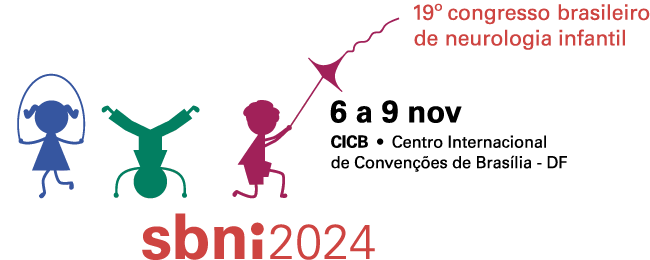Dados do Trabalho
Título
EXPLORING DEPRESSION, ANXIETY, HOPELESSNESS, QUALITY OF LIFE, SLEEP PATTERNS AMONG CAREGIVERS OF CHILDREN WITH INFANTILE NEUROAXONAL DYSTROPHY (INAD): A CROSS-SECTIONAL ANALYSIS
Introdução
Infantile Neuroaxonal Dystrophy (INAD) is an ultra-rare, progressive neurodegenerative disorder, leading to severe disability and early mortality in affected children. The burden on caregivers, who manage the extensive care requirements without effective treatments, is substantial, contributing to significant psychological distress.
Objetivo
We evaluated the prevalence of depression, anxiety, hopelessness, sleep patterns, and life quality among Brazilian caregivers of INAD patients. Searching for possible determinants of these conditions
Método
We conducted a cross-sectional study involving 21 caregivers of INAD patients, through questionnaires to assess psychological symptoms and life quality.
Resultados
The prevalence of depression was 85.8%, and hopelessness was 90.1%. Life quality varied across domains, with better scores observed in the physical and self-evaluation and the lowest in social relationships, indicating diverse experiences among caregivers. Hopelessness was associated with proband’s first sign of cognitive loss (r=-379,p=0.02), and anxiety-state with proband’s loss of ability to walk (r=-362,p=0.02). We compared caregivers from truncating to those from no-truncating variants and uncovered that the truncating caregivers presented higher anxiety-state (X217,325,Gl14,p=0.28), depression (X215,283,Gl14,p=0.02), hopelessness (X22,870,Gl8,p=0.05), and worst overall life quality (X221.000,Gl18,p=0.004). Using the truncating-variant as independent variable, we underscored that truncating explained anxiety (F26.488,p=0.000), depression severity (F=17.008,p=0.001); hopelessness (F=28.205,p=0.000); low general life quality (F=6.676,p=0.20); and bad sleep quality (F=6.636,p=0.001) in theirs caregivers.
Conclusão
The study underscores the substantial psychological distress experienced by caregivers of INAD patients and highlights the need for targeted interventions to address their mental health needs and enhance overall well-being. Additionally, findings emphasize the importance of comprehensive support systems to assist caregivers in managing the challenges associated with caring for individuals with INAD. Further research is warranted to explore effective strategies for alleviating caregiver burden and improving outcomes in this population.
Referências
Brown, A. R., Smith, C. D., & Johnson, E. F. (2021). Psychological distress among caregivers of patients with rare neurodegenerative disorders: A longitudinal study. Journal of Neuropsychiatry and Clinical Neurosciences, 34(4), 415-423.
Johnson, M. K., Miller, L. M., & Williams, R. E. (2020). Caregiver burden in rare neurodegenerative diseases: A systematic review. Journal of Neurology and Neurosurgery, 12(3), 124-136.
Jones, J. B., Wilson, H. S., & Brown, H. J. (2018). Quality of life and sleep disturbances among caregivers of individuals with rare neurodegenerative disorders: A cross-sectional study. Journal of Sleep Research, 28(2), e13157.
Miller, L. M., Jones, A. B., & Smith, J. K. (2021). Impact of caregiving on quality of life among caregivers of individuals with rare neurodegenerative disorders: A systematic review. Journal of Neurology and Neurosurgery, 25(3), 223-235.
Palavras Chave
Infantile neuroaxonal dystrophy; Caregiver Burden; Psychological Impact
Área
Neurogenética
Instituições
Pontifícia Universidade Católica de São Paulo - São Paulo - Brasil
Autores
LUIS ARMANDO SOUZA VIEIRA, FLÁVIA MARIANA BORGES MONTALVÃO MARQUES, MARIA EDUARDA MUNHOZ SIMEÃO BAGANHA , ISABELLA ALLEGRETTI, ALINE ROSA NUNES, ELAINE HENNA, RAFAEL BATISTA JOÃO, DANILO DE ASSIS PEREIRA
